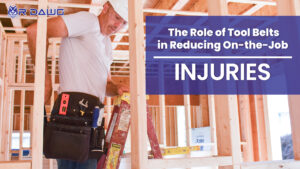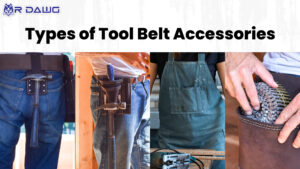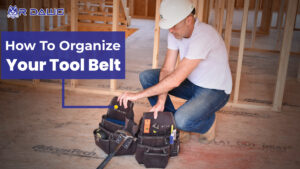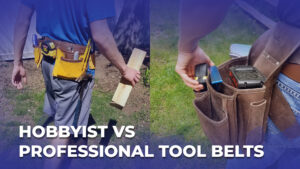
Father’s Day Gift Guide For Carpenters
Father’s Day is just around the corner, and it’s time to show appreciation for the man who has always been there to fix things around
Sometimes we demand so much from our tools. From finishing one project to another, then just leave them afterward. However, It is of the utmost importance to know how to work and take care of your tools properly.
When working, avoid keeping tools on the ground where dirt and debris can get inside moving parts. The tools should be protected in a small toolbox, put inside your pockets, or better yet, in a toolbelt. Keeping your tools in a toolbelt is the best way to retain close access to your tools while keeping them safe and out of dirt and dangers.
Also, know that your tools are very strong and built to last lots of use, but you should still be gentle with them and avoid throwing or putting them to unnecessary abuse. All it takes is an extra second to set them down properly, or put in your toolbelt.
Below are more tips on how to better take of your tools:
Clean Your Tools
Cleaning your tools is a very simple yet often overlooked task to prolong the use of your tools. The easiest thing to do is take an old rag and wipe them down a few times a week or more. Pay attention to joints where they pivot or move as these must be the cleanest.
Also, every few weeks it is best practice to apply grease often in the form of WD-40 to pivot points to prolong their lifetime and increase their efficiency. You do not need a lot, but a quick spray wiggle it around then wipe it off again is all it takes.
For power tools, always unplug them from the wall and take out the battery to remove injury before cleaning and go through a similar process of wiping them down.
Store Your Tools
After using your tools and cleaning them well, the next would be storing your tools properly.
Your tools should be stored in a dry and well-ventilated area. This decreases the risk of rust forming and helps prolong their lives. Some good examples include a toolbox in a garage like this.
Another option is using a pegboard to hang your tools and keep them away from the moist on the ground. This also provides a safe yet easy space to get access to them all.
Power Tools, however, require additional care especially if they have a battery. Ideally, they will be stored in a low humidity environment where the temperature is from 50-75*F.
This environment will provide the best solution for batteries to increase their longevity. If they are in extra hot or extra cold conditions can get worn out and decrease the battery life dramatically over time.
If you want, all you need to store inside is the batteries, and the tools themselves can be in the cooler temperatures, but still low humidity.
One more thing to know about batteries is that when you do not think you will use them for a while- like 1 or more weeks- then get them to be about 50% charged as if they remain full can decrease the battery life over time.
When To Get Rid of Your Tools
As much as we love our tools, sometimes they become unrepairable and no longer a practical solution. If they are very rusted, first try spraying them with a chemical like Rustoleum to remove it, but if it is too much may be time to dispose of.
Another time is if the pivot joints are stuck together, and after multiple coats of lubrication still remain stuck
Additionally, if they have sharp edges or become a danger to yourself you should consider replacing.
Finally, if something just falls apart on them or snaps, it is best to just cut your losses and replace them rather than try to get away with 50% efficiency and run the risk of them completely becoming unusable on the job site.
I hope you found these tips useful for how you can best take care of your tools.
Also watch more tips on this video:


Father’s Day is just around the corner, and it’s time to show appreciation for the man who has always been there to fix things around

The importance of safety on the job cannot be overstated. A safe work environment protects employees from harm, reduces the likelihood of workplace accidents, and

Tool belt accessories are designed to provide additional storage, organization, and convenience for workers, carpenters, and DIYers who need to carry tools and supplies on

A tool belt is an essential piece of equipment for many trades and DIY projects. A tool belt that is organized allows you to keep

Tool belts are an essential part of any construction project. They help you work more efficiently and safely while on the job. A tool belt

There are different types of tool belts. The tool belt is a fantastic item to carry all the necessary tools at hand. It is much
We asked 100+ professional carpenters, woodworkers, and construction workers to help you decide the best tool belt for you.
1 thought on “Taking Care of Your Tools On The Job”
Pingback: When is The Right Time To Replace Your Tool - R Dawg